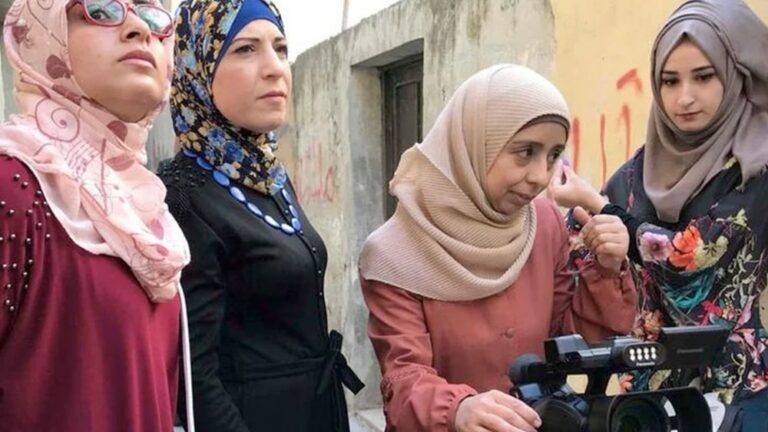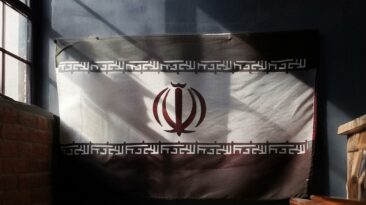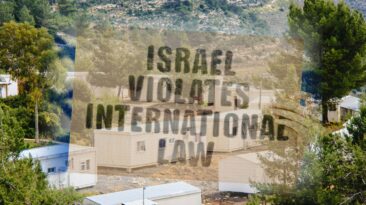A quote from the International Women’s Day website states this:
“International Women’s Day (March 8th this year) is a global day celebrating the social, economic, cultural, and political achievements of women. The day also marks a call to action for accelerating women’s equality.
IWD has occurred for well over a century, with the first IWD gathering in 1911 supported by over a million people. Today, IWD belongs to all groups collectively everywhere. IWD is not country, group or organization specific.”
The topic of Jewish women’s rights being deemed unimportant to the UN was covered in an article we published a few months ago, and it’s known that in many countries women’s rights are largely ignored. However, it appears that when it is about the living situation for women in Gaza and the Arab areas in Israel, the of rights are outshone by the anti-Israel media. Based on the current situation for these women, I propose that, if Israel were to lose the entirety of Judea and Samaria and a second Palestinian state were formed in its place, the effect would be disastrous for Arab women in the region.
The world has become so fixated on the “Israeli occupation and oppression” of the Palestinians in Judea and Samaria, that they seemingly ignore the oppression of the Palestinians by the hands of other Palestinians. Since these infringed upon rights have been largely ignored by mainstream media, many don’t know exactly what is taking place in these areas.
What issues do women in the Middle East face?
Judea and Samaria was divided into areas A, B, and C under the Oslo Accords with Area A being governed and policed by the PA, Area B is governed by the PA and policed by Israel, and Area C is governed and policed by Israel. Jews are not allowed into Area A at the risk of their own lives.
According to the US Department of State’s website, in areas under PA jurisdiction, an interim Basic Law is applied. This law states that the principles of Sharia would be the main source of legislation and also maintains a previous Jordanian rule that involves the punishment of life in prison for the act of “defaming religion”.
What is Sharia Law and what does it look like today?
Many people around the world have heard of Sharia and rightfully have uneasy feelings about it. Sharia Law and its severity vary from country to country and from region to region. One of the most recent and extreme versions of Sharia was broadcast around the world following the US’s withdrawal from Afghanistan and the takeover by the Taliban in 2021. When the Taliban reinstituted an extreme version of Sharia following their resurgence to power, the women in Afghanistan suffered immensely. These women were no longer allowed to leave their homes without a male relative, were no longer allowed to work outside the home, no longer allowed to attend school, and could be forced into marriages unwillingly. Another example of extreme Sharia is that if women in Iran are found without a hijab, they may be fined up to 30 billion Iranian rials ($60,000 USD), their drivers’ license may be revoked, their passport may be revoked, and they may no longer have access to the internet.
While the practices of Sharia are not as extreme under the PA jurisdiction, the legislation is still based on the same principles as the legislation practiced in Afghanistan or Iran.
So what is Sharia based off of? Sharia is based on the principles in the Quran, which means there is some variation in understanding, but there does appear to be an overall trend in what this means for women. In most Islamic governing bodies, an additional term to be noted will be “Islamic Law”. This law is a type of legislative/judiciary law that is derived from Sharia Law, which, in contrast, is more frequently considered as a type of religious law.
Why do I think a Palestinian state would implement this type of legal system?
I believe this type of system would be implemented in a Palestinian state because the Fayyad Plan, the plan to take over Judea, Samaria, and East Jerusalem and create a state with those borders, along with Gaza, is very bold and upfront with its intentions.
According to the Fayyad Plan, “The Department of the Chief Justice of the Family Courts has the following objectives:
- Building capacities and increasing the number of Sharia court judges, as well as providing necessary equipment.
- Constructing Sharia courthouses throughout the Palestinian countryside
- Automating operations at Sharia courts.
Safeguard citizens’ rights through:
- Developing and approving laws that regulate functions of the Sharia courts.
- Adopting a system to archive documents, both manually and electronically, in order to curb fraud, particularly in relation to inheritance, Waqf properties, marriage, divorce, etc.”
This system has already proven itself to be less than beneficial to women all over the world with varying degrees of severity. This type of system has already been implemented in areas A and B, and has resulted in very abusive and very restrictive rights for the women living there. A governing system built on a male chauvinism, even when modified, cannot fully escape many of the misogynistic practices formerly involved.
What can we do for these women?
To put it simply, as foreign eyes continue to be distracted by the lies of the media, there are real and serious human rights being violated in Judea, Samaria, and Gaza. The only thing is, contrary to the media’s skewed story, human rights are being violated by the Palestinians themselves, and not by the Jews. The only way to put an end to these violations is by stopping the ones who institute them as law. If the world really cares about Palestinian women, then they won’t allow this system to come to fruition.




“Jews are not allowed in Area C” ??? Do you not mean Area A?
Yes, area C is designated to our Jewish brethren, but the Arab people can travel through once they go through check stops and or are employed in the area. Unfortunately the Arab people are encroaching in Arab C by building illegally there and the Israeli and International gov’ts aren’t saying a thing!
Same comment
Who is thinking about the women who are still be held hostage by those Barbarian Palestinian Terrorists. Didn’t hear anything about that on International Women’s Day. Everybody concentrates on the poor Palestinians in Gaza who actually caused all this in the first place, unbelievable!
Thank you Barbara. Please keep the IDF in your prayers. The terrorists must be exterminated.
I think you mean, “Jews are not allowed into Area A at the risk of their own lives.” The article says “Area C”
Just checking because the statement as it is makes no sense. Thanks for reporting the truth of Israeli news. I really appreciate you articles and youtube videos!